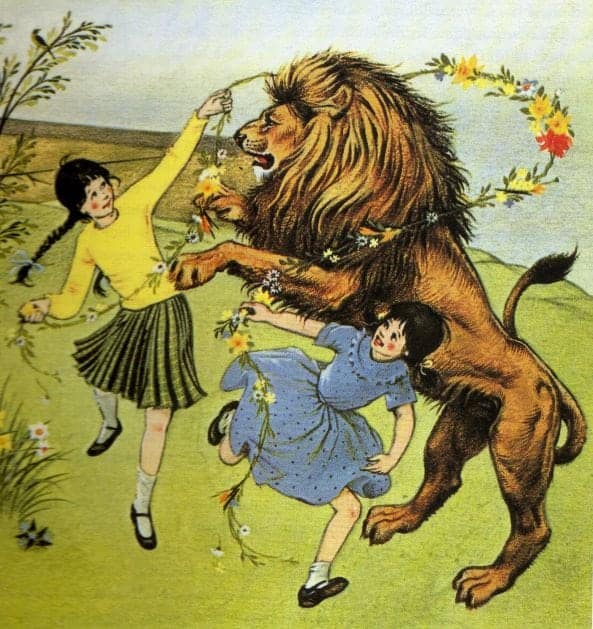Some years back there were some public comments from famous authors about the Susan in the Narnia books not being present for the Final Battle and what followed. It was framed as bigotry against women and people of average morals.
Neil Gaiman's came in the form of a short story, "The Problem of Susan," which from an excerpt I found is apparently quite vile.
Gaiman has fallen out of public favor as allegations against him have begun to surface.
Two other authors were J. K. Rowling, who ought to know better, and Phillip Pullman, who also writes vile stories, I've been told.
Pastor Douglas Wilson has a lucid, sensitive, and rather long rebuttal to the Problem of Susan; link below.
My own, lesser contribution here, is that C. S. Lewis was a fan of George MacDonald, and MacDonald wrote some vivid portrayals of spiritual devolution. In The Princess and Curdie, Curdie was given the ability to discern which beast a person's moral character was descending into by holding their hand. In Lilith, MacDonald reveals that the dull and brutish big ones/giants were immature persons who chose wrongly too many times. Their bodies grew larger while their selves grew smaller.
Susan being "no longer a friend of Narnia" is a succinct description of Susan not being anywhere near all that she should have been. It is not final, however; she is in spiritual peril, not perdition.
EDIT: That last sentence is not quite where I want it to be; Susan is lost, but not yet irredeemably so.
https://dougwils.com/books-and-culture/the-salvation-of-susan-pevensie.html
"Three souls flying home because I stayed behind"
One of the souls I've helped toward salvation suddenly flew home recently. This song helped me to really cry for the first time over it.
I happened to read about the Gadarene swine in Mark 3 this morning before coming across this piece, which mentions it.
David Clements mentions Michael Cocchini. A quick internet search tells me that they've worked together before, and that a different Michael Cocchini--and a Susan Clements--went fatally missing in the Smoky Mountains. At separate times.
Feels like a rabbit hole.
Much like Jonathan Cahn connects the major demons of ancient Israel to today's United States, Clements says that the spirits of the Nephilim are here and active.
https://joehoft.com/attorney-david-clements-mkultras-shadow-a-demonic-war-for-humanitys-mind/
A couple months ago, I put a piece of paper on the fridge--our Scammer Prayer List. We were often getting multiple scam calls per day, and while probably none of them told us their real name, God stills knows who they are and where they live, and He surely has something better for them to do all day than bother people like us.
Two names went onto the list, and these scammers were duly prayed for--they still are--and suddenly the number of scam calls dropped, by a lot. The list still has only two names on it.
The Bible says that "the gates of hell" will not prevail against Christ's Church.














